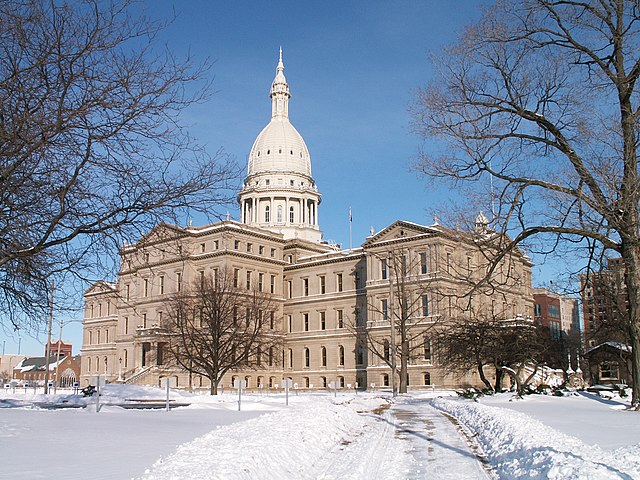Democrats regained a majority in the Michigan House of Representatives in two special elections on April 16, 2024. Mai Xiong (D) won 58.9% of the vote to Ronald Singer's (R) 41.1% in District 13 and Peter Herzberg (D) won 59.6% of the vote to Josh Powell's (R) 38.3% in District 25.
Democrats won a 56-54 majority in the Michigan House—and a state government trifecta—in the 2022 elections. Control of the chamber split 54-54 when Lori M. Stone (D) and Kevin Coleman (D) resigned after winning mayoral elections in 2023. Because Democrats regained the majority, Michigan remained a Democratic trifecta. If Republicans had gained a majority in the special elections, Democrats would have lost their trifecta.
Mai Xiong (D) and Ronald Singer (R) ran in District 13. Xiong was, at the time of the election, a member of the Macomb County Board of Commissioners who ran on her experience in elected office. Xiong said her focus would be on "bringing people together to get things done for working families." Singer was an engineer who was the Republican nominee in the district in 2022. Singer said he was running because "right now it seems like we need some adult supervision in Lansing," mentioning energy policy as an area of focus.
Peter Herzberg (D) and Josh Powell (R) ran in District 25. Herzberg was, at the time of the election, a member of the Westland City Council who ran on his experience in office. Herzberg said he had "spent my entire adult life focusing on public service, volunteering and helping my community." Powell was, at the time of the election, an IT worker and veteran of the U.S. Army. Powell said his "platform can be summed up in six simple words. Less Government; Less Regulation; Lower Taxes."
In 2022, Democrats won the District 13 election 67%-33% and the District 25 election 63%-37%. More Democrats voted in both districts' special primaries than Republicans. In District 13, 4,983 Democrats voted in the primary compared to 1,713 Republicans, while in District 25, 5,702 Democrats and 2,117 Republicans voted in the primary.
The April 16 Michigan elections were not the only state legislative special elections taking place this year where control of a chamber is at stake. Control of the Pennsylvania House of Representatives was determined by a February 13 special election to break the chamber's 101-101 split. Like in Michigan, the Pennsylvania special election took place after a Democratic legislator resigned. Unlike in Michigan, Pennsylvania Republicans controlled the state senate, meaning trifecta control of the state was not at stake.
The winners of the special elections will serve until January 1, 2025, when the winners of the November general elections will take office. Candidates who ran in the special elections were also permitted to run in the general elections.



